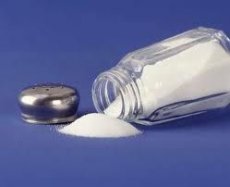Medical expert of the article
New publications
Scientists: salt deficiency triggers mechanisms similar to heroin addiction
Last reviewed: 30.06.2025

All iLive content is medically reviewed or fact checked to ensure as much factual accuracy as possible.
We have strict sourcing guidelines and only link to reputable media sites, academic research institutions and, whenever possible, medically peer reviewed studies. Note that the numbers in parentheses ([1], [2], etc.) are clickable links to these studies.
If you feel that any of our content is inaccurate, out-of-date, or otherwise questionable, please select it and press Ctrl + Enter.

As a joint study by American and Australian scientists has shown, salt is addictive, and in the case of a deficiency of this substance, the same genetic and neurological mechanisms are triggered as in nicotine, heroin or cocaine addiction, writes the Daily Mail, citing the journal Proceedings of the National Academy of Sciences.
According to experts, this is an "ancient instinct" embedded in the brain that reflects the importance of salt to the human body. According to Melbourne University professor Derek Denton, "in this study we have shown that such a classic instinct as a craving for salt provides the neural organization that serves addiction to opiates and cocaine."
Along the way, "an evolutionary mechanism of great survival significance" was discovered (the tabloid again cites Denton), the essence of which is that the signal about the intake of salt into the body reaches the brain much faster than the substance itself gets there after being absorbed by the digestive system with the bloodstream, namely within about ten minutes. This makes animals, including humans, less vulnerable to predators, the researchers are convinced.


 [
[